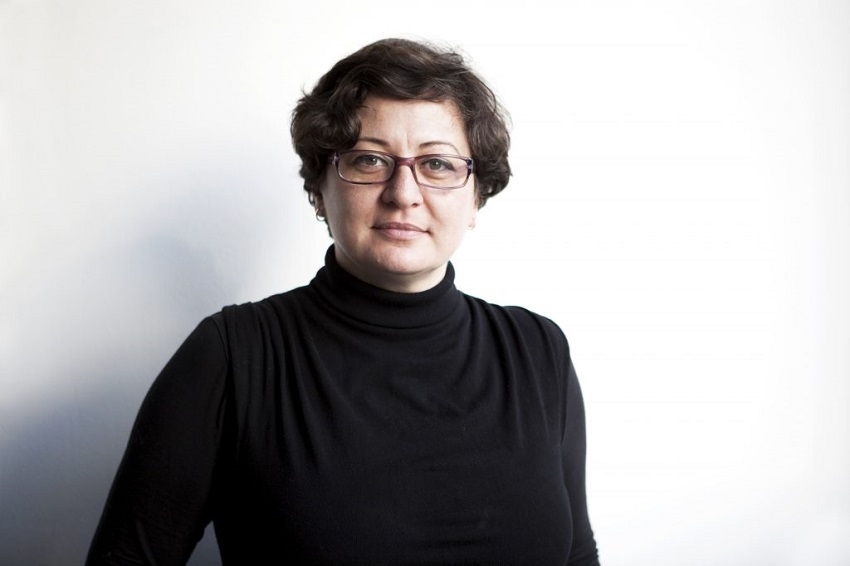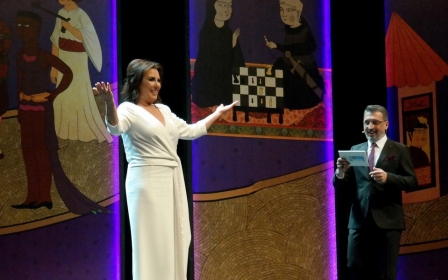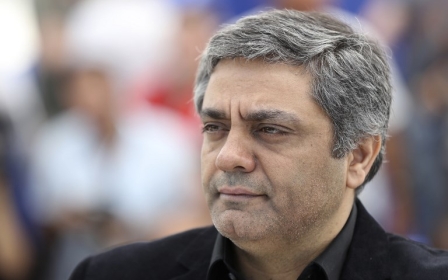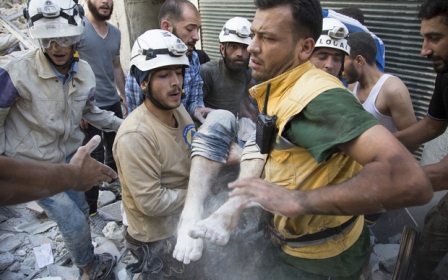Are Arab documentaries entering a golden age?

For the larger part of the 20th century, Arab documentary filmmaking was trapped in a long state of stagnation.
Initially conceived as vehicles for information transmission, the early Arab documentaries were all substance and no style, falling mostly into three categories: state propaganda, awareness campaigns and history lessons.
Their messages were obvious and blunt, and their forms were rigid and stale. For the longest time, non-fiction filmmaking in the Arab World was regarded and treated as a second-rate art form, its budgets were meagre, exhibition was restricted to television cultural shows, and audiences were negligible.
The rise of non-fiction filmmakers
The evolution of Arab documentaries started in the late 1990s with the rise of Arab satellite TV, fronted by Al Jazeera whose large budgets and wide reach gave birth to an entire generation of non-fiction filmmakers across the region.
The content acquired a new sense of urgency, topics became edgier, and the filmmakers’ relationship with their subjects was explored further.
It wasn’t until the advent of the Gulf film festivals - Dubai, and later Abu Dhabi and Doha - in the beginning of the new century that Arab documentaries became a bona fide art form with a growing audience that has not stopped peaking since then.
More filmmakers began to push the envelope, formally and narratively, and began to tell personal stories with remarkable intimacy unseen in previous eras.A major player that contributed to Arab documentary progress was Dox Box, a Syrian documentary film festival that opened in 2007. It quickly became one of the most important events of its kind in the Middle East, featuring public debates and Q&A sessions with filmmakers and producers alongside its free screenings that took place in different cities across Syria, including Tartous, Homs and Damascus, among others.
The festival simultaneously catered to both the general public and film professionals. A pitching platform would soon be established, allowing documentary filmmakers to find funding for their projects and network with film industrials from across the globe.
The Syrian war led to a premature end to the festival in 2012.
Dox Box - the lab
In 2014, Dox Box was resurrected in the form of the Dox Box Association, a non-profit organisation based in Berlin, Germany, offering residency programmes for Arab filmmakers in exile, and editing programmes and consultancy sessions. Over the past four years, it has become one of the most important laboratories for Arab documentary filmmaking.
For decades, films have been used as tools of propaganda by states, corporates and big ideologies. In this new millennium, documentary form has claimed film and cinema back to artists
- Diana El Jeiroudi, Dox Box general director
The latest initiative by Dox Box is also its most ambitious: a three-day convention for Arab documentary filmmaking, being held 12-14 April in the German city of Leipzig.
The convention is organised by DOX BOX and the Arab Fund for Arts and Culture (AFAC). Associate partners are Dok Leipzig, one of the world’s most prominent documentary film festivals in Germany, IDFA Bertha and Sundance. The Arab/European Documentary Convention pairs documentary professionals with international practitioners and decision-makers.
Producers, filmmakers, distributors, academics and programmers from across the globe will convene at the German festival to discuss some of the most pertinent issues surrounding Arab documentary filmmaking today, including alternative means of distribution, challenges of co-production, and influence of Arab documentary heritage.
As Diana El Jeiroudi, Dox Box general director, puts it, there couldn’t have been a more pressing need for such a convention than now.“Audiences are interested more and more in reality – theirs and other's realities. They are interested in the creative narrative forms that documentary cinema offers them to incubate a very complex and fast changing world,” El Jeiroudi, a Syrian filmmaker and producer, said.
Audiences are interested more and more in reality – theirs and other's realities
- Diana El Jeiroudi, Dox Box general director
The appeal of documentary films is in its peak now, not just in the Arab world, but worldwide, says Jeiroudi.
Some of the biggest success stories in Arab cinema in recent years have been documentaries, including Egyptian Kouthar Younis’ A Present from the Past (the highest grossing feature at Egypt’s only art-house cinema Zawya), a chronicle of the director's father's search for his long lost love in Italy; Palestinian Raed Andoni’s Ghost Hunting (winner of best original documentary at the 2017 Berlin Film Festival), a grueling play recreating the Moskobiya interrogation centre in Jerusalem; and Tunisian Kaouther Ben Hania’s Zaineb Hates the Snow (winner of the Tanit d'Or for best film at the 2016 Carthage Film Festival), a coming of age record of the titular Tunisian girl shot over six years - to name a few.
“For decades, films have been used as tools of propaganda by states, corporates and big ideologies. In this new millennium, documentary form has claimed film and cinema back to artists, and specifically, to individual independent artists who are able today to record and capture their realities and offer their own stories and narratives liberated from what used to be the only framework possible, and what was repeatedly a regimented one bestowed by the corporates and the states,” El Jeiroudi explained.The thrill or temptation of having success was far more relevant to them than their own voices
- Diana El Jeiroudi, Dox Box general director
The rising popularity of the form wasn’t entirely spotless, however. In recent years, growing concerns about exploitation and representation in Arab documentaries have been raised. A mounting volume of films parading the lives of young Arabs to an international bourgeois audience have put the integrity of several Arab filmmakers under the microscope.
Of the various topics discussed at the convention, ethics in documentary filmmaking is perhaps the most important at the moment.
“Films are creatures of the intellect, human artefacts, and like any other artistic productions, they are open to interpretation and even manipulation,” El Jeiroudi said. “Some films can even have a completely different impact over the different contexts in which they are displayed and shared.”
Working the system
Financing and co-production demands is another key factor influencing both the choice of subjects and how they’re treated and presented. The most successful of filmmakers are those who manage to bend or work the system, operating within it without comprising their visions. Many, however, do not, and the results can range from the well-intentioned but badly executed, to the manipulative and reductive.
“It's a fact that countries with [a] poorer film economy and film distribution look towards the countries with [a] richer film economy and distribution opportunities, and this has its effects on the whole production of films,” El Jeiroudi said.
In recent years, Arab documentary cinema reinvented itself with some of the most outstanding documentary films which managed to surprise the local and the international audiences in their novelty
- Diana El Jeiroudi, Dox Box general director
“Co-production and funding is an economic necessity for every production of art in today's world. It is a challenging time for all creative industries. Some content producers and filmmakers have been able to navigate this complexity and bring out their stories with organic unique artistic voices and with only enhanced opportunities and independence.
"But we have also seen some of the unfortunate experiences where directors and storytellers, as well as their producers, were unable to shape their films as natively and organically. The thrill or temptation of having success was far more relevant to them than their own voices.”
Arab cinema continues to be plagued by inexplicable inconsistency, going through patchy spots every few years and failing on occasion to capitalise on previous successes. However, one thing is beyond doubt: Arab documentaries are improving with every passing year.
Evidence of this success includes award-winning feature-length documentaries such as Abbas Fahdel's Homeland (Iraq Year Zero), an expansive chronicle of everyday life in Iraq before and after the US invasion; Zeina Daccache’s 12 Angry Lebanese, an adaptation of Reginald Rose's play 12 Angry Men performed by Lebanese prisoners; Amer Shomali and Paul Cowan’s animated feature The Wanted 18, a telling of the Palestinian effort in the small town of Beit Sahour to start a small local dairy industry during the First Intifada.
Innovative forms
“In recent years, Arab documentary cinema reinvented itself with some of the most outstanding documentary films which managed to surprise the local and the international audiences in their novelty, with the new approach to this medium of expression, with the captivating narrative and with the innovative forms,” El Jeiroudi said.
“These films are now being taught and they should be, as they contribute to the expansion of imagination of the whole genre of documentary globally.”Along with AFAC and Dok Leipzig, Dox Box partnered with the Dutch IDFA Bertha Fund and the American Sundance Documentary Foundation for the convention. Although the focus this year is on the link between the Arab World and Europe, El Jeiroudi and her team hope to expand the scope of the convention in the near future to include the rest of the world.
“We hope that the first edition sets the playing field for a long-term discussion and exchange that is actively led by the players of the international industry,” El Jeiroudi said. “We hope to ultimately create a lobby and point of reference for the advancement of documentary at large.”
This article is available in French on Middle East Eye French edition.
New MEE newsletter: Jerusalem Dispatch
Sign up to get the latest insights and analysis on Israel-Palestine, alongside Turkey Unpacked and other MEE newsletters
Middle East Eye delivers independent and unrivalled coverage and analysis of the Middle East, North Africa and beyond. To learn more about republishing this content and the associated fees, please fill out this form. More about MEE can be found here.




